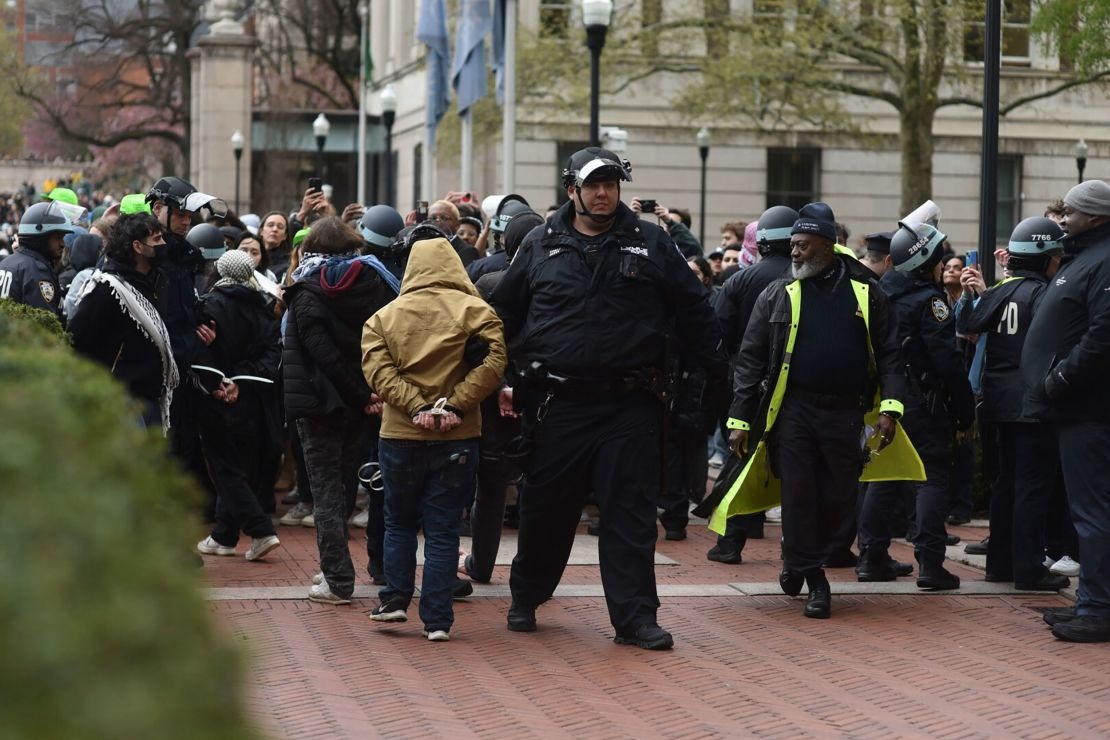Dozens of students at Columbia University found themselves in police custody on Thursday following a 34-hour occupation of part of the campus as a protest against the conflict in Gaza.
The students had pledged to occupy the South Lawn of the Morningside Heights campus until the university divested from companies associated with Israel.
This demonstration revealed while Columbia University President Minouche Shafik was testifying at a congressional hearing on antisemitism at the school.

President Minouche Shafik (Credits: The New York Times)
Responding to Shafik’s request for assistance, more than 50 police officers arrived on the scene equipped with batons and zip ties, according to the Columbia Daily Spectator.
Shafik stated that the protesters had been instructed numerous times to disperse, and as a result, participating students have been suspended. In her letter, Shafik expressed regret over the necessity of taking action, citing safety concerns for both the individuals involved and the wider community.
According to reports from the New York Post, the students offered no resistance as they were apprehended by the police. Onlookers at the scene chanted phrases like “let them go” and “shame on you” as the arrests took place.
During her testimony at the congressional hearing, titled “Columbia in Crisis: Columbia University‘s Response to Antisemitism,” Shafik condemned antisemitism, emphasizing its incompatibility with the university’s values.

Over 100 arrested in Columbia U unrest (Credits: The Times of Israel)
In an op-ed published in The Wall Street Journal earlier in the week, Shafik underscored the importance of maintaining a balance between free speech and ensuring a safe campus environment.
Tensions have been escalating on university campuses since the Hamas attack on Israel in October. Jewish students have expressed concerns about inadequate responses to antisemitism by their institutions, while Palestinian rights advocates claim to have faced disproportionate targeting and censorship.
Columbia University, along with numerous other academic institutions, is currently under investigation by the Department of Education for allegations of antisemitism and Islamophobia on campuses. The university has also been subject to lawsuits from both pro-Palestinian and Jewish student groups regarding their respective concerns.























